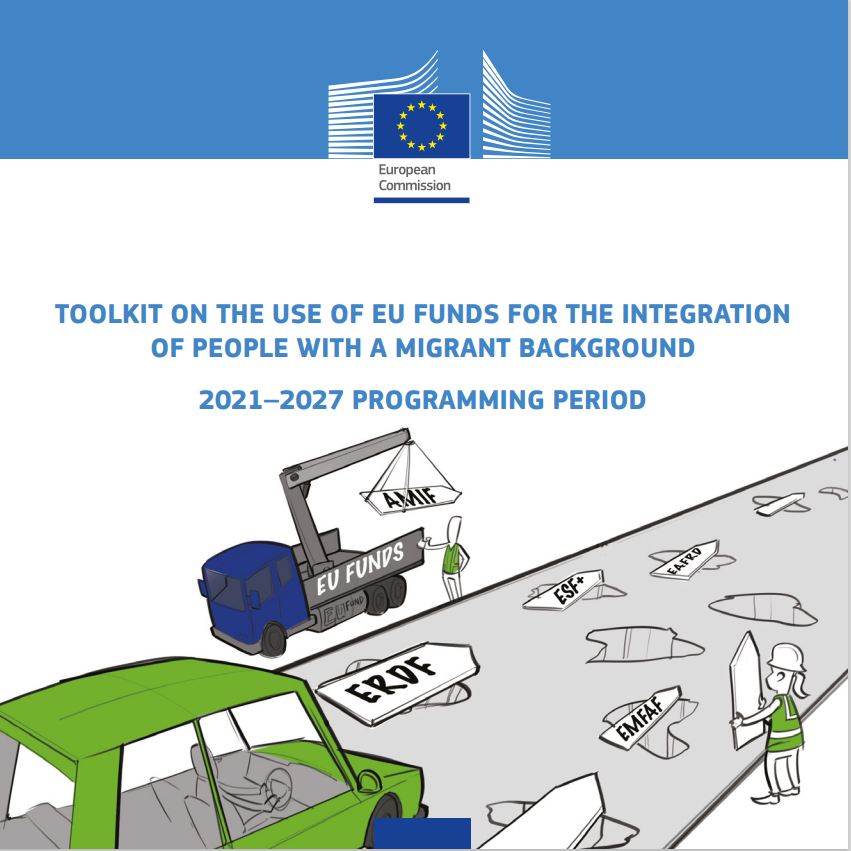
The integration of people with a migrant background – which includes those currently having to leave Ukraine – is within the scope of support provided through the European Regional Development Fund (ERDF), the European Social Fund (ESF) and the Asylum, Migration and Integration Fund (AMIF).
To illustrate how they provide complementary support, the Commission published a Toolkit on the use of EU funds for the integration of people with a migrant background for the 2021–2027 programming period. EU countries are invited to make use of this Toolkit, which can also guide the design of integration measures to address the needs of persons arriving from Ukraine, as well as of other persons with a migrant background.
EU countries may find the following EU-funded examples useful when developing integration measures to help migrants:
Integrating immigrant mothers via local women (Berlin, Germany): Neighbourhood mothers, known as ‘Stadtteilmütter in Neukölln’, is a grassroots outreach project aimed at facilitating access to information and services that help families from immigrant backgrounds with young children of up to 12 years old. It was launched in 2004 in Berlin’s Neukölln area with 12 Turkish mothers receiving training to support newly-arrived mothers. It has now become a network of over 70 neighbourhood mothers from different nationalities who help to integrate families and create a cohesive community.
This project empowers women on both sides of the relationship: newcomers receive valuable advice, information and gain confidence, while neighbourhood mothers gain employment income and status. The support benefits the local community, increases integration, and boosts interaction with immigrant families and social cohesion.
Vital health and social services for the most vulnerable – including migrants (Brussels, Belgium): The Integrated Health and Social Centres project focuses on providing health and social services to some of the most vulnerable people – including migrants – living in the Belgian capital. The project’s volunteers set up two centres in the Cureghem and Molenbeek neighbourhoods and use a converted mobile home to provide medical services to those on the street.
The services provided there range from primary care to mental health help for both adults and children, as well as family planning, debt mediation and assistance in overcoming addictions. While everyone from the surrounding areas is welcome, specific attention is given to the most vulnerable with the goal of incorporating them into the primary care system and reducing their stigmatisation.